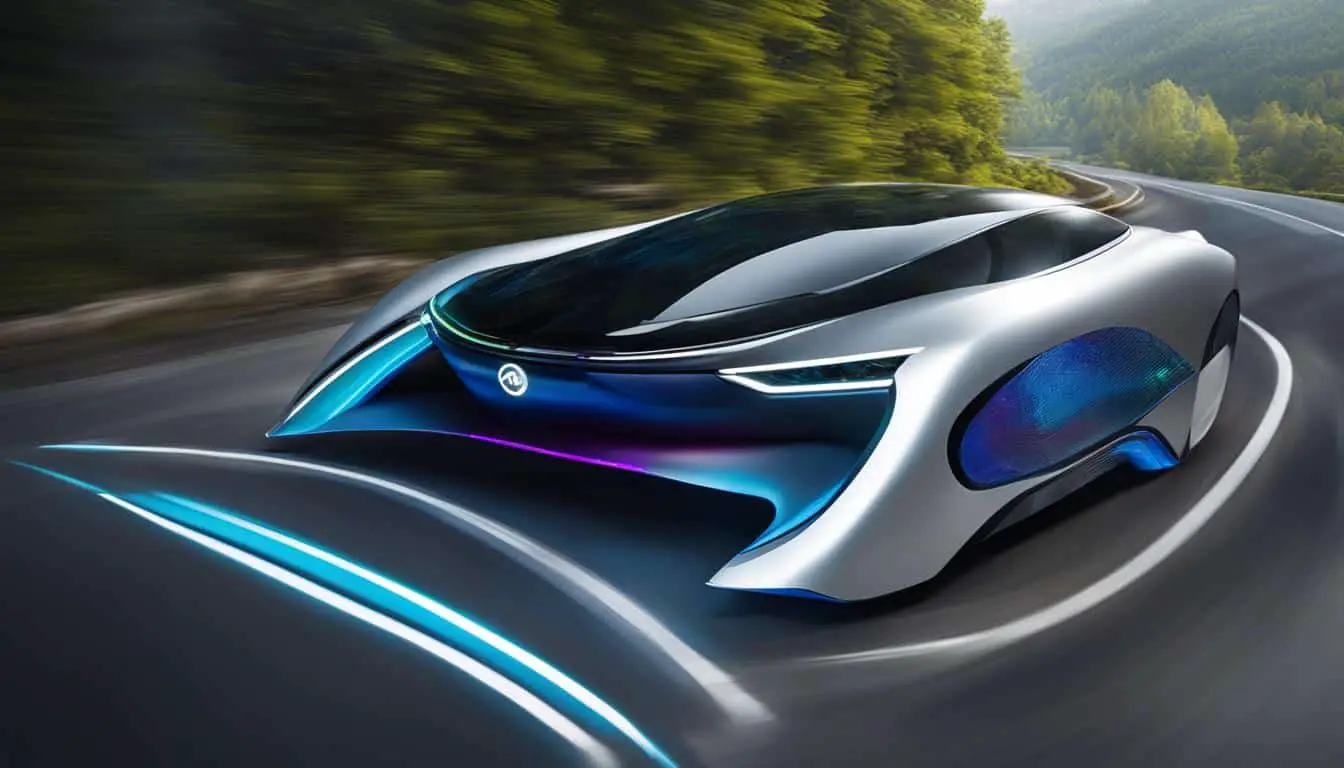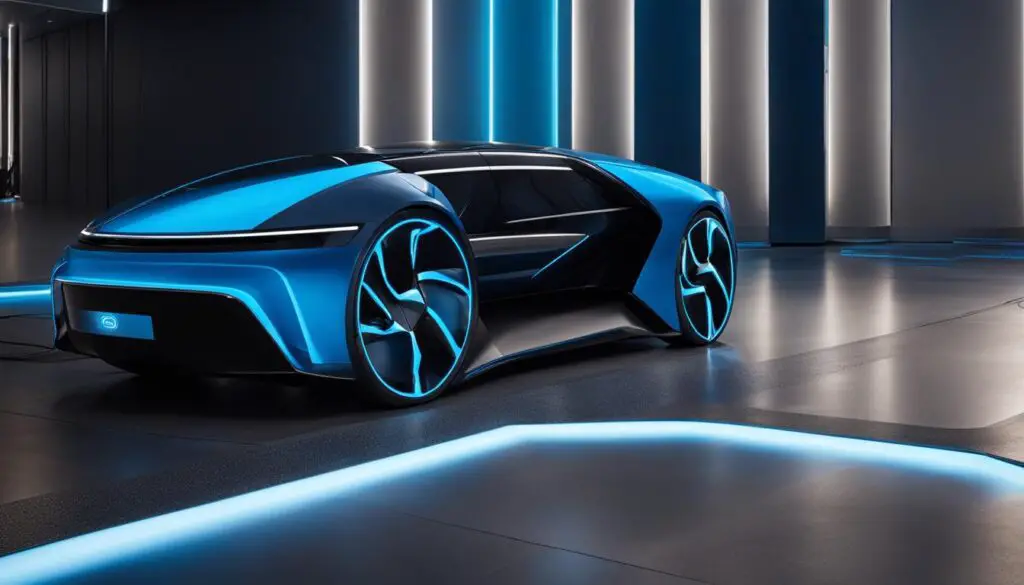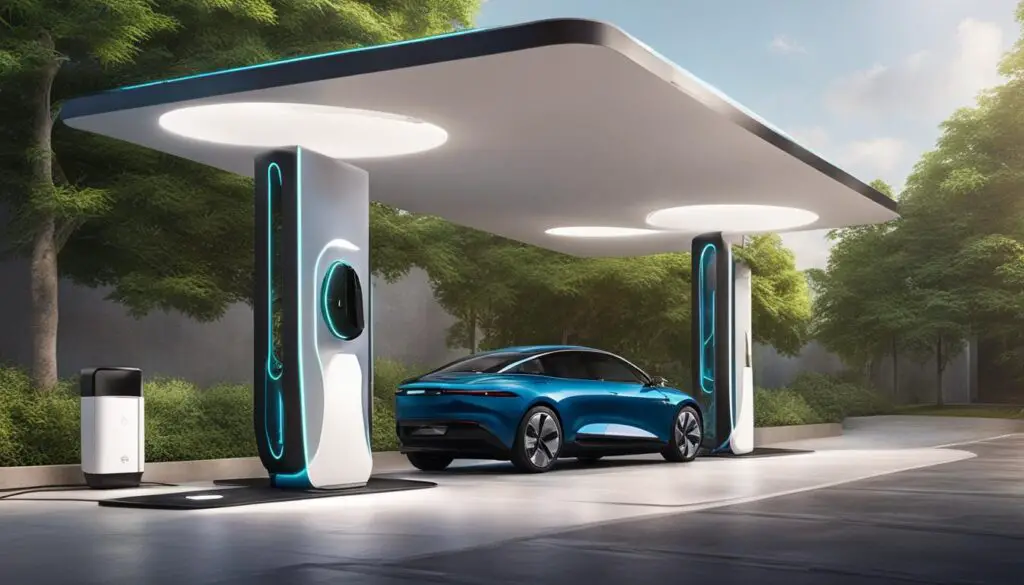
Exploring the Newest Advances in EV Battery Technology
The electric vehicle (EV) and plug-in hybrid EV markets are experiencing significant growth worldwide, driving notable advancements in battery technology. These advancements aim to improve battery affordability, energy density, charging speed, lifespan, and safety. Lithium-based battery technologies like lithium-nickel-manganese-cobalt and lithium-iron-phosphate currently dominate the market, but new technologies such as solid-state batteries show promise in terms of cost, size, and energy density. The energy density of commercial batteries has increased from under 100 Wh/L in 2008 to over 700 Wh/L in 2023, with further developments expected to surpass 1,000 Wh/L.
Key Takeaways:
- Advancements in EV battery technology are driving the growth of the electric vehicle industry.
- Lithium-based batteries like lithium-nickel-manganese-cobalt and lithium-iron-phosphate currently dominate the market.
- New technologies such as solid-state batteries show promise in terms of cost, size, and energy density.
- The energy density of commercial batteries has significantly increased over the years.
- Further developments in EV battery technology are expected to enhance affordability, energy density, charging speed, lifespan, and safety.
As the demand for electric vehicles continues to rise, exploring the newest advances in EV battery technology is crucial for both consumers and the industry. These advancements are shaping the future of sustainable transportation, offering longer ranges, shorter charging times, and a cleaner, greener future. In this article, we will delve into breakthroughs in battery chemistry, advancements in EV technology, futuristic innovations, and the potential they hold for the electric vehicle industry.
Breakthroughs in Battery Chemistry
EV battery technology is continuously advancing, and breakthroughs in battery chemistry are at the forefront of these developments. This section explores some of the most promising advancements that are revolutionizing the electric vehicle industry.
Solid-State Batteries
One of the most significant breakthroughs in EV battery technology is the development of solid-state batteries. These batteries replace the liquid electrolyte found in traditional lithium-ion batteries with a solid material, offering numerous advantages. Solid-state batteries are known for their improved safety, higher energy density, and faster charging times. With the absence of liquid electrolytes, the risk of leakage and flammability is significantly reduced, making them safer for widespread use. Additionally, solid-state batteries have the potential to store more energy per unit volume, resulting in longer driving ranges for electric vehicles.
Silicon Anode Batteries
Another breakthrough in battery chemistry is the utilization of silicon as an anode material in EV batteries. Silicon anode batteries have garnered attention due to their ability to store more energy than traditional graphite anodes. Silicon has a much higher energy storage capacity, allowing for increased energy density and improved performance. The use of silicon anodes has the potential to significantly enhance the range of electric vehicles, making them more practical and appealing to consumers.
Lithium-Sulfur Batteries
Lithium-sulfur batteries are also emerging as a promising alternative to traditional lithium-ion batteries. These batteries offer higher energy density, reduced costs, and more sustainable materials. Lithium-sulfur batteries utilize sulfur as the cathode material, which is more abundant and environmentally friendly compared to the cobalt commonly found in lithium-ion batteries. While lithium-sulfur batteries have shown excellent potential, challenges related to cycle life and stability still need to be addressed for commercial viability.
Recycling EV Batteries
As the prevalence of electric vehicles grows, the recycling of EV batteries is becoming crucial for sustainability. Companies like Tesla and Redwood Materials are actively researching efficient and cost-effective methods for recycling EV batteries. Recycling not only helps recover valuable materials like lithium, cobalt, and nickel but also reduces environmental impact by preventing toxic materials from ending up in landfills. Additionally, second-use batteries are being repurposed for applications such as home energy storage, further extending their lifespan and reducing waste.
Advancements in EV Technology
The world of electric vehicle (EV) technology is evolving at a rapid pace, with numerous advancements in areas such as fast charging, battery management systems, and wireless charging. These advancements are transforming the way we charge and use EVs, enhancing convenience, efficiency, and longevity.
Fast Charging: Powering Up with Speed
One of the most exciting advancements in EV technology is fast charging, which enables EV owners to recharge their vehicles quickly, reducing downtime and increasing usability. Thanks to improved charging infrastructure and the development of high-power charging stations, EVs can now be topped up much faster than before.

Fast charging has become a game-changer for EV owners, especially those on long trips or with busy schedules. In a matter of minutes, drivers can recharge their batteries to a significant level, providing peace of mind and eliminating range anxiety.
Battery Management Systems: Prolonging Battery Life
Battery longevity is a crucial factor for EV owners, and advancements in battery management systems (BMS) are addressing this concern. BMS technology monitors, controls, and optimizes the performance of EV batteries, ensuring their longevity and reliability.
“Battery management systems play a vital role in maximizing the lifespan of EV batteries. These systems monitor battery health, temperature, and usage patterns, allowing for intelligent and efficient management of battery charging and discharging.”
With enhanced BMS capabilities, EV batteries can now operate within their optimal temperature range, avoiding extreme conditions that can degrade battery performance. This results in increased battery lifespan, saving EV owners from costly battery replacements in the long run.
Wireless Charging: Charging Made Effortless
Wireless charging is another exciting advancement in EV technology, making charging effortless and convenient. Through the use of electromagnetic fields, energy can be transferred from charging pads to EVs, eliminating the need for physical charging cables and ports.

Wireless charging offers numerous benefits, such as ease of use and reduced wear and tear on charging ports. EV owners can simply park their vehicles over a charging pad, and the charging process initiates automatically.
Moreover, wireless charging eliminates the need for extensive charging infrastructure, making it a viable option for homes, parking lots, and public spaces. This technology paves the way for a future where charging stations are seamlessly integrated into our everyday environments.
Comparison of Charging Technologies
| Charging Technology | Speed | Convenience | Infrastructure Requirements |
|---|---|---|---|
| Fast Charging | High | Requires dedicated charging stations | Deployed at strategic locations |
| Wireless Charging | Moderate | Effortless, no physical connections required | Integration into existing infrastructure |
| Conventional Charging | Slow | Requires physical connection | Widespread availability |
Table: Comparison of Charging Technologies
As seen in the table above, fast charging provides the highest charging speed, perfect for on-the-go charging, while wireless charging offers convenience and integration into existing infrastructure. Conventional charging, although slower, remains widely accessible and is suitable for everyday charging needs.
Overall, advancements in EV technology are revolutionizing the way we charge our electric vehicles. With fast charging, improved battery management systems, and the convenience of wireless charging, EV ownership is becoming more practical and efficient.
Futuristic Battery Innovations
Researchers are exploring futuristic innovations in EV battery technology to enhance the performance, accessibility, and sustainability of electric vehicles. These innovations open up new possibilities for the industry, revolutionizing the way we think about energy storage in vehicles.
Batteries as Structural Components
One exciting innovation involves using batteries as structural components in electric vehicles. This concept combines the rigidity required for structural integrity with the energy storage capabilities of batteries. By integrating batteries into the vehicle’s structure, manufacturers aim to optimize space utilization and improve overall vehicle efficiency.
Cobalt-Free Batteries
Cobalt is an essential element in many lithium-ion batteries, but its scarcity, cost, and ethical concerns surrounding its mining have prompted researchers to develop cobalt-free battery alternatives. These innovative batteries use nickel, aluminum, and manganese in place of cobalt, offering similar performance while addressing the associated challenges. Cobalt-free batteries not only reduce the environmental impact of EV production but also contribute to creating a more sustainable battery supply chain.
Batteries from Seawater
Another exciting development in EV battery technology involves extracting materials from seawater to create cost-efficient batteries. Seawater contains abundant minerals, such as magnesium, which can be used to develop efficient and sustainable battery materials. This approach offers the potential for a more environmentally friendly and scalable battery production process.
As researchers continue to explore these futuristic battery innovations, the future of EVs looks promising. From batteries integrated into vehicle structures to cobalt-free alternatives and materials extracted from seawater, these advancements are paving the way for more accessible, sustainable, and environmentally friendly electric vehicles.
Other Noteworthy Advancements
In addition to the breakthroughs discussed earlier, there are several other remarkable advancements in EV battery technology that show great promise for the future of electric vehicles.
Sand Batteries: Harnessing the Power of Pure Silicon
Traditional lithium-ion batteries use graphite as the anode material. However, researchers are exploring the use of sand to create pure silicon anodes in batteries. By replacing graphite with silicon, these batteries offer improved performance and energy storage capabilities. Silicon-based batteries have the potential to significantly increase the energy density and lifespan of EV batteries, paving the way for longer ranges and more efficient electric vehicles.
Powering EVs with Wi-Fi: A Wireless Charging Concept
Imagine a world where EVs can be charged without the need for physical charging stations. This concept is being explored through Wi-Fi-powered charging. By converting alternating current (AC) power into direct current (DC) power through radio wave harvesting, EVs could be charged wirelessly using existing Wi-Fi infrastructure. This innovative approach eliminates the need for extensive charging infrastructure and offers increased convenience for EV owners.
Ultrasound Charging: Wireless Power Transmission
Ultrasound charging is a cutting-edge technology that aims to deliver wireless power transmission to EVs. By converting electrical energy into sound waves, it is possible to beam power to vehicles equipped with receivers. This concept holds great potential for efficiently charging EVs without the need for physical connections or cables. Ultrasound charging could revolutionize the way we power electric vehicles, providing a convenient and wire-free charging experience.
These remarkable advancements, including sand batteries, Wi-Fi-powered charging, and ultrasound charging, represent exciting possibilities for the future of EVs. They offer increased energy density, improved convenience, and sustainable charging solutions. As the world continues to prioritize sustainable transportation, these innovations will play a vital role in shaping the electric vehicle landscape.
The Future of EV Battery Technology
As the world transitions towards sustainable transportation, advancements in EV battery technology are poised to reshape the industry. Innovations such as solid-state batteries, silicon anode batteries, and lithium-sulfur batteries offer the potential for increased energy density and improved performance.
One of the key advantages of these advancements is the ability to achieve longer ranges, allowing electric vehicles to travel greater distances on a single charge. This not only enhances the convenience for EV owners but also addresses range anxiety, a common concern among potential buyers. With longer ranges, EVs become a more viable option for daily commutes, long-distance travel, and various applications.
In addition to longer ranges, advancements in EV battery technology also target shorter charging times. Fast charging technologies, such as those based on high-power charging stations or advanced charging protocols, significantly reduce the time it takes to recharge an electric vehicle. This improvement in charging speed makes EVs more comparable to traditional gasoline-powered vehicles in terms of refueling time, enhancing the overall ownership experience.
Battery longevity is another critical aspect of the future of EV battery technology. As batteries degrade over time, their efficiency and capacity decrease, impacting the overall performance of an electric vehicle. Manufacturers are investing in research and development to improve battery lifespan, ensuring that EVs remain reliable and cost-effective over an extended period. By addressing concerns about battery degradation, advancements in battery technology contribute to the long-term viability and sustainability of EVs.
Aside from energy density, range, charging times, and battery longevity, the future of EV battery technology also focuses on sustainability. Recycling initiatives are being implemented to efficiently handle end-of-life batteries and extract valuable materials for reuse. By recycling EV batteries, valuable resources can be conserved while reducing the environmental impact associated with manufacturing new batteries. Additionally, wireless charging technologies are being developed, enabling EVs to charge without the need for physical connections. This further improves convenience and reduces the need for extensive charging infrastructure.
Through sustainable transportation, longer ranges, and shorter charging times, the future of EV battery technology is poised to revolutionize the automotive industry. As advancements continue, electric vehicles will become more accessible, reliable, and environmentally friendly. The widespread adoption of EVs will contribute to a cleaner, greener future, reducing dependency on fossil fuels and mitigating the adverse effects of climate change.
| Advancement | Benefits |
|---|---|
| Solid-state batteries | – Improved safety – Higher energy density – Faster charging times |
| Silicon anode batteries | – Increased energy storage capacity – Longer ranges |
| Lithium-sulfur batteries | – Higher energy density – Reduced costs – Sustainable materials |
| Fast charging | – Shorter charging times – Enhanced convenience for EV owners |
| Battery longevity | – Extended lifespan – Cost-effective ownership |
| Recycling | – Conservation of valuable resources – Reduced environmental impact |
| Wireless charging | – Elimination of physical connections – Increased convenience |
Conclusion
The electric vehicle industry is thriving, thanks to the constant advancements in EV battery technology. These advancements are revolutionizing the electric vehicle industry by addressing key concerns such as range anxiety and charging times, while also making EVs more accessible to the general public. With breakthroughs in battery chemistry, including solid-state batteries, silicon anode batteries, and lithium-sulfur batteries, the future of electric vehicles looks promising.
Furthermore, innovations in fast charging, wireless charging, and battery longevity are enhancing the practicality and convenience of EVs. Fast charging technologies enable EV owners to recharge their vehicles quickly, while wireless charging eliminates the need for physical charging infrastructure. Battery longevity is also improving, alleviating concerns about the lifespan and performance of EV batteries.
These advancements in EV battery technology not only benefit the electric vehicle industry but also contribute to the goal of achieving sustainable transportation. As the world transitions towards a cleaner and greener future, the developments in battery technology play a vital role. The battery revolution is shaping the way we drive, paving the way for a more sustainable transportation ecosystem.
In conclusion, the continuous advancements in EV battery technology are propelling the electric vehicle industry forward. With improved energy density, faster charging times, and a focus on sustainability, electric vehicles are becoming more practical and environmentally friendly. The future of transportation is electric, and as these advancements continue to unfold, we can look forward to a world with longer ranges, shorter charging times, and a cleaner, greener future for all.
FAQ
What are the latest advancements in electric vehicle technology?
The electric vehicle (EV) and plug-in hybrid EV markets are experiencing significant growth worldwide, driving notable advancements in battery technology. These advancements aim to improve battery affordability, energy density, charging speed, lifespan, and safety.
What are some breakthroughs in battery chemistry?
Some breakthroughs in battery chemistry include solid-state batteries, silicon anode batteries, and lithium-sulfur batteries. Solid-state batteries replace the liquid electrolyte with a solid one, offering improved safety, higher energy density, and faster charging times. Silicon anode batteries have the potential to store more energy than traditional graphite anodes, increasing the range of electric vehicles. Lithium-sulfur batteries offer higher energy density, reduced costs, and more sustainable materials compared to lithium-ion batteries.
How are EV batteries being recycled?
As the prevalence of EVs grows, recycling and second-use batteries are becoming crucial for sustainability. Companies like Tesla and Redwood Materials are actively researching efficient and cost-effective methods for recycling EV batteries.
What advancements have been made in EV technology?
Advancements in EV technology include fast charging, wireless charging, and battery longevity. Fast charging technologies and improved charging infrastructure are making it possible to recharge EVs quickly, enhancing the convenience for EV owners. Battery management systems are also improving, increasing battery lifespan and addressing concerns about degradation over time. Wireless charging, utilizing electromagnetic fields to transfer energy from charging pads to vehicles, offers added convenience and reduces the need for physical charging infrastructure.
What are some futuristic battery innovations?
Some futuristic battery innovations include using batteries as structural components, cobalt-free batteries, and batteries made from seawater. Using batteries as structural components provides both rigidity and energy storage capabilities. Cobalt-free batteries, using nickel, aluminum, and manganese, are being developed to address the scarcity, cost, and environmental concerns associated with cobalt. Materials extracted from seawater are being used to create more cost-efficient batteries.
Are there any other noteworthy advancements in EV battery technology?
Yes, there are. Other noteworthy advancements include sand batteries, which use pure silicon derived from sand to improve battery performance compared to traditional graphite-based lithium-ion batteries. Additionally, there are concepts being explored such as powering EVs with Wi-Fi, eliminating the need for physical charging stations by converting AC power into DC power through radio wave harvesting. Ultrasound charging, a technology that converts power into sound waves and beams it to EVs, also shows promise for wireless power transmission.
What does the future hold for EV battery technology?
As the world transitions towards sustainable transportation, advancements in EV battery technology are poised to reshape the industry. Innovations such as solid-state batteries, silicon anode batteries, and lithium-sulfur batteries offer the potential for increased energy density and improved performance. Fast charging, battery longevity, recycling, and wireless charging are all contributing to the growth and adoption of EVs. The future of EV battery technology promises longer ranges, shorter charging times, and a cleaner, greener future.
How are EV battery technology advancements impacting the electric vehicle industry?
The electric vehicle industry continues to evolve, driven by advancements in battery technology. These advancements aim to eliminate range anxiety, shorten charging times, and make EVs more accessible to consumers. With breakthroughs in battery chemistry, fast charging, wireless charging, and battery longevity, the future of EVs is looking promising. These advancements are not only making electric vehicles more practical but are also contributing to a sustainable transportation future.
Source Links
- https://www.enverus.com/blog/driving-the-future-exploring-breakthroughs-in-ev-battery-technology/
- https://www.mrlcg.com/resources/blog/what-are-the-latest-developments-in-electric-vehicle-battery-technology-/
- https://steerev.com/electric-vehicles-evs/top-revolutionary-advances-in-ev-battery-technology/
